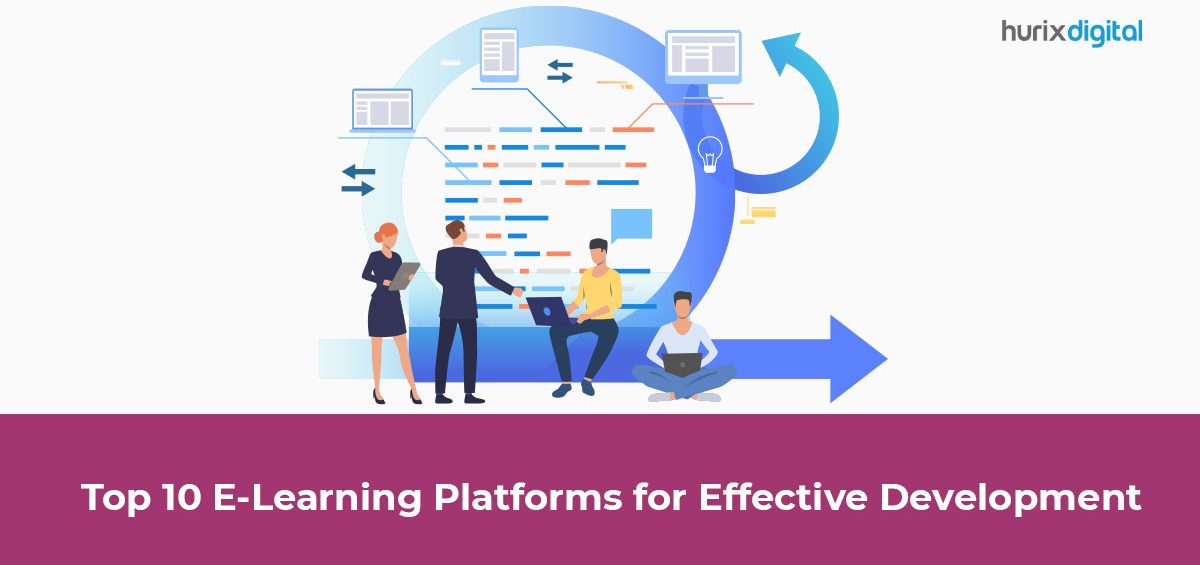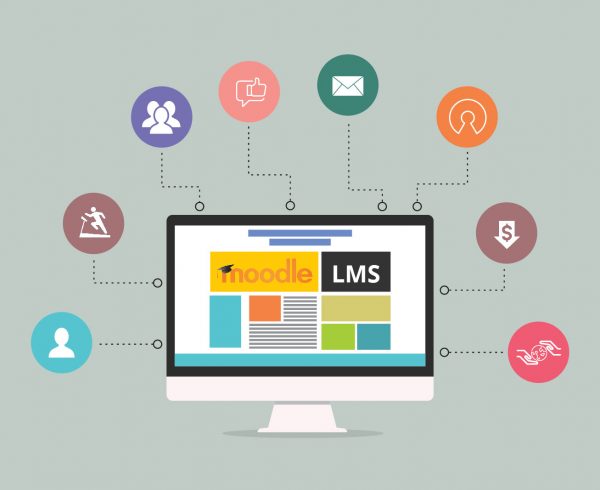Do you want to learn a new skill along with your full-time job or degree program? The numerous e-learning platforms in the digital sphere can easily make this possible for you.
Since the COVID-19 pandemic, there has been massive growth in e-learning platforms. With the closure of schools and universities around the world, students were forced to switch to online learning to continue their education.
Additionally, the growth of e-learning platforms is not only limited to the education sector but has also extended to professional development and upskilling.
Many companies and individuals have turned to e-learning platforms to acquire new skills and stay relevant in a rapidly changing job market. By 2025, the e-learning platform market is expected to become a $325 billion industry globally.
If you are also looking forward to e-learning development, you are in the right place. We have curated a list of the top 10 e-learning platforms you can greatly benefit from.
Before we begin to discuss the top 10 e-learning platforms, let us quickly discuss e-learning platforms to help you make an informed decision.
Table of Contents:
- What are E-Learning Platforms?
- Top 10 Platforms for E-Learning Development
1. Hurix
2. LinkedIn Learning
3. Adobe Captivate
4. Skillshare
5. Coursera
6. LearnWorlds
7. Kajabi
8. Edx
9. Blackboard Learn
10. Moodle - Closing Thoughts
What are E-Learning Platforms?
E-learning platforms are online tools allowing learners to access educational resources and interact with instructors and peers over the internet.
These platforms are designed to provide a virtual classroom experience that is similar to the traditional face-to-face classroom setting but with added flexibility and convenience.
They can be used in a variety of contexts, including K-12 education, higher education, and professional development. Such platforms are used for self-paced learning or as part of a structured curriculum and can be accessed from anywhere with a stable internet connection.
Top 10 Platforms for E-Learning Development
Many e-learning platforms are available for developing and delivering online courses. Here are 10 popular platforms that are widely used and offer a range of features and functionality:
1. Hurix
Hurix is a best e-learning platform that provides solutions for digital content development, educational technology, and corporate training. It offers a range of services, including content development, content management, content distribution, and technology solutions.
Hurix provides personalized learning experiences with the help of its AI-powered learning platform that provides adaptive learning paths, personalized assessments, and feedback to learners. Their platform is also designed to support mobile learning, which makes it easy for learners to access course materials on the go.
2. LinkedIn Learning
LinkedIn Learning is an e-learning platform that was originally launched as Lynda.com in 1995 and was later acquired by LinkedIn in 2015. As of 2022, LinkedIn Learning had 875 million registered users.
One unique feature of LinkedIn Learning is its integration with the LinkedIn platform. Learners can add completed courses and certifications to their LinkedIn profiles, which can help them showcase their skills and expertise to potential employers and clients.
3. Adobe Captivate
Adobe Captivate was first introduced in 2002 and has since become a popular tool for e-learning professionals and instructional designers. It offers a wide range of pre-built templates and themes, which can help users save time and effort in creating engaging e-learning content.
Adobe Captivate integrates with other Adobe products, such as Photoshop and Illustrator, as well as with Learning Management Systems (LMS), which can help users streamline their e-learning workflows and deliver their content to learners more efficiently.
4. Skillshare
Skillshare is the best e-learning platform that offers a variety of courses and workshops on a range of topics, including creative arts, design, entrepreneurship, lifestyle, and technology.
It was founded in 2010 and operates on a subscription-based model, with a monthly or annual fee that gives learners unlimited access to its library of courses.
The platform offers a range of courses, from short tutorials to longer workshops, and learners can complete them at their own pace. However, two of the major cons of Skillshare are that it only supports video-based courses and does not offer certificates after completion of the course.
5. Coursera
Coursera was founded in 2012 and has since grown to become one of the largest e-learning platforms, with millions of learners and thousands of courses.
The platform offers a range of courses in areas such as computer science, business, humanities, and social sciences, taught by instructors from prestigious universities such as Stanford, Yale, and Duke.
Coursera’s platform is designed to be user-friendly and flexible, with features such as self-paced learning, video lectures, interactive quizzes, and peer-reviewed assignments.
6. LearnWorlds
LearnWorlds is an all-in-one, cloud-based learning management system (LMS) that allows educators, trainers, and businesses to create, market, and sell their online courses and digital products.
One of the key features of LearnWorlds is its drag-and-drop course builder, which allows users to create and customize their courses and products without any coding or technical skills.
Another important feature of LearnWorlds is its ability to deliver a range of multimedia content, such as videos, interactive ebooks, and webinars.
7. Kajabi
Kajabi is an all-in-one platform that allows entrepreneurs and small business owners to create, market, and sell their digital products and online courses. It also offers a range of features and tools that can help users market and sell their products more effectively.
For example, the platform offers customizable landing pages, email marketing tools, and integrated payment gateways that allow users to sell their products directly to customers.
Some of its disadvantages as an e-learning platform are that it is very expensive and doesn’t offer many customization and course creation tools compared to other platforms. Some of its basic features are quizzes, assessments, and community forums.
8. Edx
EdX is an e-learning platform that offers a wide range of courses and programs from top universities and institutions around the world. It was founded in 2012 by Harvard University and the Massachusetts Institute of Technology (MIT) to provide high-quality education to anyone, anywhere.
EdX courses are designed and taught by experts in their fields, including professors and industry professionals, and are delivered through a range of multimedia content, such as videos, readings, and interactive exercises.
Edx is highly popular for its STEM field courses and for providing financial assistance to students and learners in need. However, it is important to keep in mind that not all courses are available for financial assistance.
9. Blackboard Learn
Blackboard Learn is a web-based learning management system (LMS) that allows educators to create and manage online courses and learning activities. It was first introduced in 1997 and has since become one of the most widely used LMS platforms in higher education.
Some of its highly appreciated advantages are that it comes with a mobile app and is also compatible with LTI, SCORM, IMS, and more.
The app is available on both iOS and Android devices and offers features such as push notifications, grade alerts, and discussion forums. It provides numerous pricing options and a 30-day free trial.
10. Moodle
Moodle is a free and open-source learning management system (LMS) that allows educators to create and manage online courses and learning activities.
It was first introduced in 2002 and has since become one of the world’s most widely used e-learning development platforms, with 352,095,257 users and 43,412,728 courses.
Moodle is highly customizable, with a range of plugins and themes available to enhance its functionality and appearance. Educators can tailor their courses to meet their students’ and organizations’ specific needs and requirements.
Another important feature of Moodle is its community of users and developers. Moodle has a large and active community of users who share ideas, resources, and best practices.
Closing Thoughts
We hope the above-mentioned list will go a long way in helping you make an informed choice.
Get in touch with us at Hurix to access one of the best platforms for e-learning development. We are known to provide the best e-learning platform, along with other digital solutions, to customers across a range of industries. Some of our trusted customers include Ikea, FedEx Express, Deloitte, and Philips.











